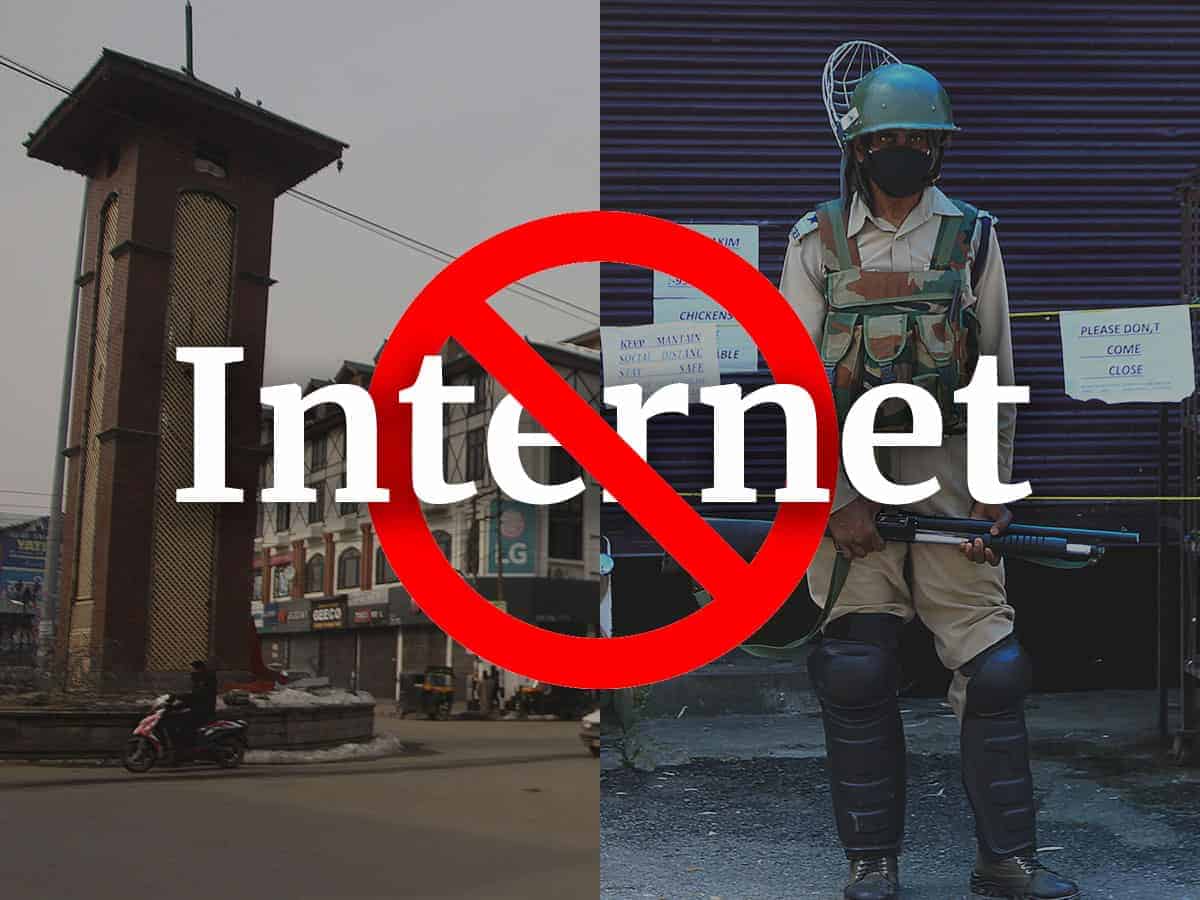Srinagar: “We were planning to expand our business after witnessing the growth, but we could not,” says Sheikh Usman, a Kashmiri entrepreneur based in the union territory of Jammu and Kashmir’s Srinagar area. “Some of my business partners went to places like Delhi and Banglore in search of jobs once life in J&K came to standstill in 2019,” he revealed after a brief pause.
Named after the iconic city square of Srinagar lalchowk.in delivers books to its customers in a single day as a result people, mostly youth, would buy from the virtual market. “For e-commerce uninterrupted internet is important,” Usman, the co-owner of the largest online book store of Kashmir told Siasat.com adding that online business due to frequent internet ban gets choked.
Lalchowk.in was going to witness expansion in less than a month when its sales reached “absolute zero” following the abrogation of Article 370 on August 5, 2019. “Due to communication and internet blockade we suffered losses to the extent that we have not recovered them as of now,” says Usman who holds a computer science degree from the University of Kashmir. “It may take a year or two at least to establish our stores in north and south Kashmir as we had planned before August 5, 2019,” he says.
Saba Shafi, a female entrepreneur and the first makeup artist of Kashmir, says that the sales of Kashmiri online entrepreneurs get reduced to more than 80 per cent whenever internet services are snapped in the region. “What happens to online entrepreneurs like me when the internet is suspended is that people who know you personally are able to reach you,” says Shafi, who holds an MBA from Dehli University. “My entire booking process is through email (makeupbysaba@gmail.com) and certainly not through messages on social media,” she adds.
“When the internet does not work here I am not able to check my email nor are people able to send me emails as a result I don’t get new work,” she reveals. “A couple of times during the lockdown following the abrogation of Article 370, I took flights to Delhi and returned home on the same day so that I can check emails,” she adds.
“Internet played a vital role in reaching out to the people on a larger scale other than the word of mouth that could have attracted people belonging to only certain strata of the society,” says Shafi who has over 144K followers on Instagram. “If I calculate the overall losses that I have suffered due to internet blockade since 2013 is around 60 percent of my business,” she revealed.
Shafi told Siasat.com that the non-availability of the internet to online entrepreneurs is equal to “snatching livelihood of the people” adding that the government does not have any clue about how many people in Kashmir earn livelihood with the help of the internet. “80 percent of my earnings come through the internet and only 20 percent through non-internet bookings,” Shafi says.
Frequent internet bans and not getting new orders has been worrying Misbah Shafiq Khan, a new entrepreneur, who has set up a bakery and confectionery business in 2020 at her home. “Internet ban is something that has been worrying me as I have heard stories of many online entrepreneurs who had to wind-up their well-established business,” says Khan. “I wonder if such a situation occurs, my newly established business too will run in losses,” she adds.
Artsy-Cakes-n-Bakes-by-Misbah has almost three thousand followers on Instagram. The home baker receives four orders on an average per day. “All orders are placed through the internet,” Khan told Saisat.com adding that without the internet her business is worth nothing. “I share the pictures of my Artsy-Cakes on social media and people forward it to their friends and relatives in case they need cakes and other bakery stuff,” she adds.
Safa Ali, a myrtle artist, says that uninterrupted internet will help Kashmiri online entrepreneurs to flourish their business and stabilise the economy of the UT. “Ever since high-speed internet service has been resumed, my Instagram profile has witnessed more hits,” Ali told Siasat.com. “My work after the restoration of the internet has circulated as a result more and more clients have started booking my appointments in advance,” she added.
Jammu and Kashmir has a long history of internet blockades and in 2019 internet remained suspended for over 200 days when the government of India abrogated Article 370 of the Constitution and the erstwhile state was bifurcated into the union territories of Jammu & Kashmir and Ladakh.
The internet ban was lifted on 25th January 2020 and only whitelisted websites were accessible while social media remained prohibited. The government claims that internet blocks are needed to fight “extremism” and “false news”, but people on the ground say the government blocks the internet so as to silence protesters and prevent the spread of information about atrocities.

